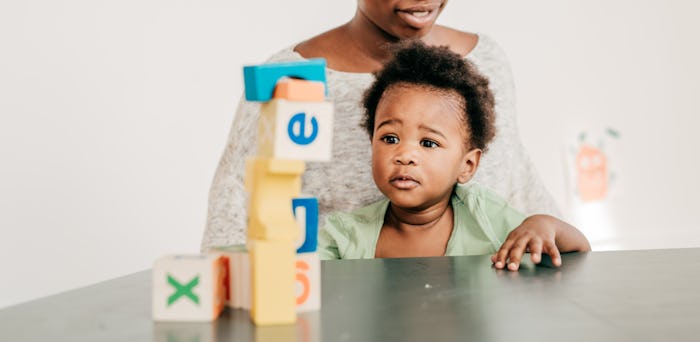Life

What Is Unschooling? The Benefits Of This Homeschooling Style Are Unique
As you explore your child’s educational options for the upcoming school year, there might be one alternative that you haven’t considered yet: unschooling. If you’ve heard the term floating around, you need to know what unschooling is and how it works. Once you understand its methodology (it doesn't exactly play out the way it sounds), you might find it to be a strong option for your child and family.
Unschooling essentially takes everything you thought you ever knew about education (i.e. teachers, curriculums, and classrooms), and tosses it all out the window. Whereas traditional learning in a brick-and-mortar school (and even most distance learning) is done by teachers and other instructors, unschooling puts your child in charge of their educational endeavors. “Unschooling is led by the interests and curiosities of the student,” Tricia Dunn, a home education specialist, tells Romper in an email interview. “In a way unschooling fits under the umbrella of homeschooling like any other style of homeschooling."
Although unschooling has a lot of names (delight-directed learning, child-led learning, even natural or life learning), it's all essentially the same idea. At its core, unschooling is child-led learning that is facilitated by parents. But if you thought that unschooling meant no schooling, think again. “Unschooling can be misunderstood, because some people seem to believe that it implies no learning," agrees Dunn. “This could not be more opposite than what is truly what unschooling is, since it’s really is a philosophy that embraces that fact that learning is all around us.” Essentially, it debunks the idea that learning can only occur from Monday-Friday, from 9:00-3:00, and only in a traditional classroom setting.
“Unschooling is something natural that comes as an output of our parenting philosophy to teach our kids as we go about our days,” Micki Boas, an education expert and author of One in Five: How We’re Fighting For Our Dyslexic Kids In A System That’s Failing Them, tells Romper in an email. For example, if your child likes maple syrup on their morning pancakes, you might make a lesson to help your child learn how maple syrup is made. You can even take a virtual trip to see how maple is tapped from trees. “In my experience, unschool days take place more organically, and with the approach that through living life itself there is much to be learned,” Imani Razat, a mother who has been homeschooling her son for 7 years, tells Romper in an email. “When COVID-19 and the BLM protests hit, we turned very much to an unschooling approach, putting down the books for awhile to really take in, observe, and think critically about what was happening around us.” It's an opportunity to teach your child practical lessons about life and living — to answer questions and prepare your child for experiences that will come up in the real world.
In order for your formerly in-school child to learn how to unschool, though, there needs to be a period of transition. “Whether it’s homeschool or unschool, parents benefit from starting out with a period of deschooling for their children and themselves,” Mary Ann Kelley, founder of TheHomeschoolMom.com tells Romper in an email interview. “Deschooling is a period of freedom in learning that allows both parents and their children to move out of the mindset of public or private school culture as the norm, and is a break-in period while everyone figures out and gets used to the new normal of learning at home.”
In that way, unschooling is a lot like homeschooling, which is legal in all 50 states and its territories, per the Home School Legal Defense Association (HSLDA). Depending on your state, there might be certain requirements that you’ll need to meet in order to unschool. For example, you’ll learn if you need to file a letter of intent to your local district, if there are state-mandated subjects you need to teach, assessment requirements, or if there is a portfolio review meeting that needs to be held between you and your child’s school district.
But here's the beauty of it all. If you opt to unschool, you don't have to officially register your decision with the district in order to do so. After all, at its core, unschooling is about connecting with your kiddo, talking with them, and exploring their interests together. That means you can, in theory, unschool anytime, regardless of whether your child is in-school, distance learning, or even homeschooling. And for that, you don’t really need any other label than just being a loving, supportive parent.